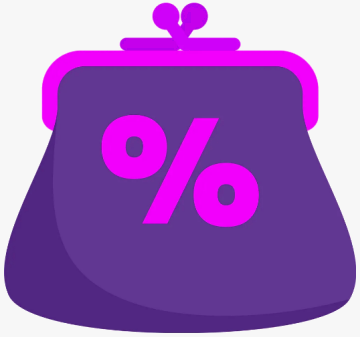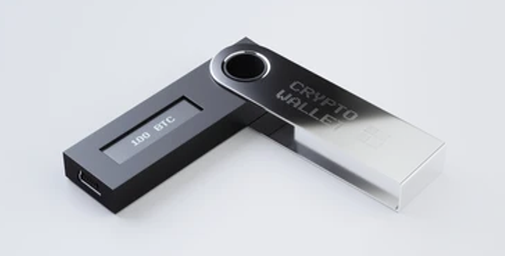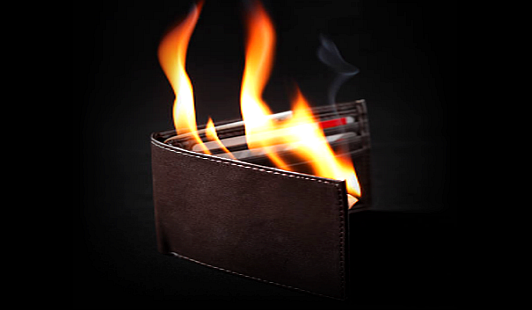Accredited InvestorsAltcoinAnatoli UnitskyAnti-Money Laundering (AML) In CryptoAPIArbitrageArtCoin TokenArticle DirectoryASICAuction Terminology GlossaryBasics of Stock Market InvestingBear MarketBest Crypto Payment Provider In the WorldBitcoinBlockchainBlockchain ConfirmationBlockchain Consensus MechanismBlockchain ForkBlockchain GlossaryBored Ape Yacht ClubBuild a Business That OutperformsBull MarketBuying SkyWay SharesByzantine Fault Tolerance (BFT) ExplainedCasascius CoinCentral Bank Digital Currency (CBDC)Centralized Crypto ExchangeCoinCoinsetCold WalletCollateralCommodity Futures Trading Commission (CFTC)Cross-Chain TechnologyCRUCrypto ExchangeCrypto GlossaryCrypto JokesCrypto Terms to KnowCrypto TickerCryptocurrencyCryptographyCryptojackingCryptounit BlockchainCryptounit GlossaryCryptounit ProgramdApp (Decentralized Application)Dead CoinDecentralized Exchange (DEX)Decentralized Finance (DeFi)Difference Between Bitcoin and EthereumDifferent Ways of Investing MoneyDigital CurrencyDistributed LedgerDo Your Own Research (DYOR)Dollar Cost Averaging (DCA)Dow Jones Industrial Average (DJIA)EncryptionERC-20ERC-721EthereumEvoScentFear Of Missing Out (FOMO)Fear, Uncertainty and Doubt (FUD)Fiat MoneyFNT Fintech CompanyGenesis BlockGlobal Unit PayGlossary of Banking TermsGlossary of Business TermsGlossary of Financial TermsHalvingHODLHot WalletHow Do I Start InvestingHow Rich is Satoshi Nakamoto?How to Create a BlockchainHow to Find Private InvestorsHow to Get Into FintechHow to Program Smart ContractsI Am Thrilled to Be a Part of This Global ProjectInitial Coin Offering (ICO)Initial Public Offering (IPO)Initial Token Offering (ITO)Innovation Basalt TechnologyInnovative Transportation TechnologiesInternational Bank Account Number (IBAN)Investing in Gold Mining StocksInvesting in Gold MiningJagerJoy of Missing Out (JOMO)Know Your Customer (KYC)LedgerLiquidity in CryptocurrencyMaker and Taker Fees in Crypto TradingMarket Capitalization (Market Cap)Meme CoinMetal Credit CardMetaMaskMillenials Now Have Access to Generational WealthMy Best Investment EverNew Digital EvolutionNFT GlossaryOff-Chain TransactionsOn-Chain TransactionsOpen Edition NFTPeer-to-Peer (P2P)Personal Loan GlossaryProbably the Best STO on the MarketProof of Stake (PoS)Real Estate Glossary of TermsReal Estate Investing GlossaryRebase TokenSecurities and Exchange Commission (SEC)Security Token ExchangesSecurity Token Offering (STO)Soulbound Decentralized Identities for Security TokensSoulbound ID Launch by Stobox Proves a SuccessSoulbound TokensStoboxStock Market GlossaryTestimonialsTether Platform and Token (USDT)UnitEx ExchangeUnitsky String TechnologiesUNTBUSDUValidatorWe Started Investing When We Were 25What are Blue Chip NFT?What are Blue Chip Stocks?What are Crypto Assets?What are Crypto Smart Contracts?What are CryptoPunks NFT?What are Digital Assets?What are Digital Collectibles?What are Gas Fees?What are Gas Wars?What are Hashmasks?What are Non Fungible Tokens?What are Non-Sufficient Funds (NSF)?What are Soulbound Tokens (SBT)?What are Stablecoins in Crypto?What are Transactions Per Second (TPS)?What are Utility NFTs?What are Utility Tokens?What Does Burning Crypto Mean?What Does Diamond Hands Mean?What Does Paper Hands Mean?What Does To The Moon Mean?What Does WAGMI Mean?What Happened to Satoshi Nakamoto?What is a 51% Attack?What is a Baby Boomer?What is a Backlink?What is a Banner?What is a Barcode?What is a Bid-Ask Spread in Crypto?What is a Block in Blockchain?What is a Block Reward?What is a Blockchain Address?What is a Blockchain Node?What is a Blockchain Oracle?What is a Blog?What is a Bond?What is a Bot?What is a Broker?What is a Business Accelerator?What is a Cash Cow?What is a Commercial Bank?What is a Commodity?What is a Con?What is a Credit?What is a Credit Limit?What is a Credit Rating?What is a Crypto Airdrop?What is a Crypto Bridge?What is a Crypto Scam?What is a Crypto Token?What is a Crypto Wallet?What is a Crypto Whale?What is a Crypto Winter?What is a Cryptocurrency Public Ledger?What is a Cryptocurrency Roadmap?What is a DAO?What is a Dark Pool?What is a Day Trader?What is a Dead Cat Bounce?What is a Default?What is a Derivative?What is a Digital Credit Card?What is a Fiscal Quarter?What is a Fungible Token?What is a Governance Token?What is a Grace Period?What is a Hard Fork?What is a Hot Wallet?What is a Hybrid Blockchain?What is a Hybrid PoW/PoS?What is a Joint Account?What is a Market Cap?What is a Merkle Tree in Blockchain?What is a Mining Farm?What is a Nonce? What is a PFP NFT?What is a POS System?What is a Prepaid Card?What is a Private Blockchain?What is a Private Key?What is a Public Blockchain?What is a Public Key?What is a Reserve Currency?What is a Ring Signature?What is a Routing Number?What is a Rug Pull in Crypto?What is a Safe Deposit Box?What is a Satoshi?What is a Security Token?What is a Seed Phrase?What is a Shitcoin?What is a Sidechain?What is a Soft Fork?What is a Spot Market?What is a State Bank?What is a SWIFT Code?What is a Tax Identification Number (TIN)?What is a Time Deposit?What is a Transaction Account?What is a Variable Interest Rate?What is a Virtual Assistant (VA)?What is a Virtual Card?What is a Virtual Currency?What is a Visa Card?What is a Whitelist in Crypto?What is a Whitepaper?What is Accounts Payable (AP)?What is AMA in Crypto?What is Amortization?What is an Accrual?What is an ACH Transfer?What is an Actuary?What is an Addendum?What is an Algorithm?What is an Angel Investor?What is an Annuity?What is an Asset?What is an ATM?What is an Atomic Swap?What is an Audit?What is an Avatar?What is an EIN?What is an Embargo?What is an Entrepreneur?What is an IDO (Initial Dex Offering)?What is an Interest Rate?What is an Internet cookie?What is an Investment Bank?What is an NFT Drop?What is an NFT Floor Price?What is an Ommer Block?What is an Orphan Block?What is an Outstanding Check?What is an Overdraft?What is Artificial Intelligence (AI)?What is B2B (Business-to-Business)?What is B2G (Business-to-Government)?What is Bartering?What is Bitcoin Dominance?What is Bitcoin Pizza Day?What is Blockchain Immutability?What is Blockchain Used For?What is BRICS?What is Business-to-Consumer (B2C)?What is C2C (Customer to Customer)?What is Capitalism?What is Catfishing?What is CFD Trading?What is Check Kiting?What is Cloud Mining?What is Communism?What is Content Marketing?What is Decentralization in Blockchain?What is DeFi in Crypto?What is Delisting?What is Depreciation?What is Digital Marketing?What is Diversification?What is Double Spending?What is Dumb Money?What is Dumping?What is Earnings Per Share (EPS)?What is Economics?What is Email Marketing?What is Equity?What is Etherscan?What is Fintech?What is Foreign currency?What is Forex?What is Fundamental Analysis (FA)?What is GameFi?What is Generative Art NFT?What is Gwei?What is Hard Currency?What is Hash Rate?What is Hashing in Blockchain?What is Inflation?What is Initial Game Offering (IGO)?What is Interest?What is Interest Income?What is Mainnet?What is Mastercard?What is Metaverse in Crypto?What is Mining in Cryptocurrency?What is Minting NFT?What is Mobile Banking?What is Money Laundering?What is NFT Alpha?What is NFT Metadata?What is NFT Rarity?What is NGMI Meaning?What is Nominal Interest Rate?What is Online Banking?What is Open-End Credit?What is OpenSea NFT Marketplace?What is Personal Identification Number (PIN)?What is Play-to-Earn?What is Polygon?What is Proof of Authority (PoA)?What is Proof of Work (PoW)?What is Public Key Cryptography?What is Pump and Dump?What is Quantum Computing?What is Refinancing?What is Retail Banking?What is Ripple?What is Sharding?What is Slippage in Crypto?What is Smart Money?What is Solvency?What is Soulbound ID?What is SSL?What is Staking in Cryptocurrency?What is Technical Analysis (TA)?What is Testnet?What is the Ask Price?What is the Better Business Bureau (BBB)?What is the Bid Price?What is the Dark Web?What is the InterPlanetary File System (IPFS)?What is the Gold Standard?What is the Lightning Network?What is the Prime Rate?What is the Sandbox?What is the Secondary Market?What is the World Bank?What is Tier 1 Capital?What is Tokenomics?What is TRC-20?What is Universal Banking?What is Unspent Transaction Output (UTXO)?What is Usury?What is Volatility in Crypto?What is Wash Trading?What is Web3?What is Whisper?What is XRP?What is Zero-Knowledge Proof (ZKP)?Who is Beeple?Who is Satoshi Nakamoto?Who is Vitalik Buterin?Why Tokenization is a Safe HavenWhy You Should Try Your Hand at Trading
What is a Crypto Wallet?
- Home
- Cryptounit Glossary
- What is a Crypto Wallet?
Before investing in any cryptocurrency, it is important to set up a crypto wallet to securely organize and manage your portfolio. Each wallet is protected by a private key, which ensures that only the owner can access the wallet's contents.

In addition to storing cryptocurrencies, a crypto wallet also allows for the safe sending and receiving of various types of cryptocurrencies.
What is a Crypto Wallet?
A crypto wallet, also known as a digital wallet, is a software program that stores private and public keys for various cryptocurrencies. These keys are used to access, send, and receive digital assets on blockchain networks.
When you purchase a cryptocurrency, the coins are not stored in a physical location like a bank. Instead, they are stored on the blockchain network and can only be accessed through the use of a private key. This private key is unique to each individual wallet and is what allows the owner to access and manage their digital assets.
There are several different types of crypto wallets available, including hardware wallets, software wallets, and paper wallets. Hardware wallets are physical devices, such as a USB drive, that store the private key offline, making them one of the most secure options.
Software wallets, on the other hand, are digital and can be accessed through a computer or mobile device. These wallets are generally less secure than hardware wallets, but they are more convenient to use. Paper wallets are a type of cold storage, which means they are not connected to the internet, and it is a physical copy of the private key.
When setting up a crypto wallet, it is important to ensure that you are using a reputable and secure platform. It is also important to keep your private key safe and not share it with anyone. As long as you have access to your private key, you will always have access to your digital assets, even if the wallet provider goes out of business.
Do You Need a Wallet for Cryptocurrency?
Yes, you will need a crypto wallet if you plan to invest in or use cryptocurrency.
A crypto wallet is necessary to access and manage your cryptocurrency. Your private keys, stored in the wallet, are required to access the blockchain network and use your digital assets. Wallets can store private keys, but only "software wallets (hot wallets)" have the capability to access the blockchain. It's crucial to keep your private keys separate from your hot wallet until you are ready to use them.
Pros and Cons of Crypto Wallets
Crypto wallets offer a secure way to store and manage cryptocurrency. However, like any technology, they also have their own set of pros and cons.
One of the biggest advantages of using a crypto wallet is security. Wallets use private keys to access digital assets on the blockchain, which means that only the owner has access to the funds. Additionally, hardware wallets, which store private keys offline, offer the highest level of security.
Another pro is convenience, as crypto wallets can be accessed from anywhere, at any time, as long as you have internet connection.
On the other hand, one of the cons of crypto wallets is that they can be vulnerable to hacking, if not used correctly. It's important to use reputable and secure platform, and also to keep your private key safe and not share it with anyone.
Another con is that some crypto wallets can be difficult for beginners to use, due to their complex nature and the need to secure private keys.
In summary, crypto wallets offer a secure and convenient way to store and manage cryptocurrency, but it's important to be aware of the potential downsides and take the necessary precautions to keep your funds safe.

Custodial vs Non-Custodial Wallets
Custodial and non-custodial wallets are two different types of crypto wallets. A custodial wallet is one where a third party, such as an exchange or a bank, holds the private keys on behalf of the user. This means that the user does not have full control over their digital assets and is dependent on the third party for access.
On the other hand, a non-custodial wallet is one where the user holds their own private keys and has full control over their digital assets. Non-custodial wallets are generally considered to be more secure as the user is in control of their own funds and does not have to rely on a third party.
What Are the Key Factors to Consider When Choosing an NFT Wallet?
- Security: Look for a wallet that offers advanced security features such as multi-factor authentication, private key encryption, and biometric login options.
- Ease of use: Choose a wallet that is user-friendly and easy to navigate.
- Compatibility: Make sure the wallet is compatible with the type of Non fungible tokens (NFTs) you plan to store.
- Backup and Recovery: Look for a wallet that offers backup and recovery options in case you lose access to your device or wallet.
- Support for multiple blockchain: It is important to ensure that the wallet supports the blockchain that the NFTs are built on.
- Additional features: Some wallets may offer additional features such as portfolio tracking and market data, which can be beneficial for managing and monitoring your NFTs.
Related Articles

Cold Wallet
Many cold wallets (also called hardware wallets) are physical devices that look similar to...

Hot Wallet
Unlike cold wallets, which are disconnected from the internet and therefore less susceptible to cyber attacks, hot wallets are more vulnerable to hacking and other...
- Home
- Cryptounit Glossary
- What is a Crypto Wallet?